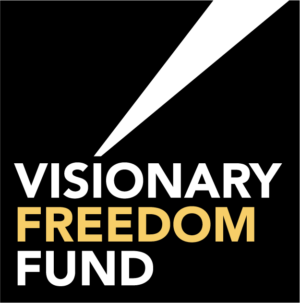Beyond Trust: Why Philanthropy Needs to be Restorative for Radical Change
As we’ve reflected on our experiences on the Power Table, we’ve grappled with the tension between philanthropy and community, and learned to be flexible in order to support the movement and to offer youth organizers what they need to succeed. One concept that keeps bubbling up is how philanthropy should be more restorative — which includes ceding power to community leaders to restore historic harms and inequities — and how shifting to this approach can build trust and enhance accountability.
“In traditional philanthropy, the way that trust is usually established is in a very transactional way … Trust has to be transformational if it’s actually going to be real.”
– Jessica Pierce, VFF Project Coordinator
While well-intentioned, philanthropy has a history of applying an impersonal and transactional formula to its grantmaking — apply, fund, repeat. Attempts at authentic relationship-building often don’t go far enough and put the burden on resource-strapped organizations. As movement leaders overextend themselves to prove their funding worthiness (via arduous reporting, extensive grant applications, uncompensated field visits, etc.), the process leaves them exhausted and frustrated. The result is a disconnect between what funders and grantees perceive as a good working relationship. This power imbalance leads to a breakdown in trust. The onus is on philanthropy to check its privilege and to prioritize what is in the best interest of the movement, not its own legacy.
“I would really encourage funders to be radical, to really talk to the people they’re trying to fund, talk to the communities that they’re trying to aid and give those people the power to make decisions for themselves.”
– Jemima Abalogu, Youth Leader, VFF Power Table
Philanthropy’s origins are rooted in capitalistic ideals — a small group of high net worth individuals make funding decisions that impact communities of which they are not a part. This notion that outsiders know what’s best is flawed. Funding alone is not the vehicle for building trust and by itself won’t result in transformational change. But, it can be a start.
“It is going to take a transformation, dismantling and reimagining of philanthropy in order to redistribute the resources that are needed.”
– Bryan Perlmutter, VFF Project Coordinator
Historically disinvested communities know what they need to make their communities whole. Community members already hold the solutions; they just lack the resources. Resources that philanthropy has a responsibility to give back. This restorative approach recognizes philanthropy’s traditional role in exacerbating inequality and relinquishes power in an effort to balance the scales.
“We learned about the different types of possibilities available to philanthropy when we move money and relinquish the power to determine where it goes.”
– Manuela Arciniegas, Past Philanthropic Partner, VFF Power Table
When philanthropy and community find synergy and practice patience, the two groups can forge a powerful partnership with a shared vision. The Visionary Freedom Fund proves this is possible. The Fund emphasizes the importance of bringing youth organizers and movement leaders to the Power Table. The Table challenges funders to face their own biases around grantmaking, while at the same time, imparting their knowledge. This intergenerational, cross-disciplinary Table is learning to confront their contradictions and, through this tension, is learning to trust each other.
“It takes a stance of learning and humility from funder communities to build trust with folks who aren’t in the funding world.”
– Maisha Quint, Philanthropic Partner, VFF Power Table
In our experience, trust is not something we build overnight. Building trust requires the need to be flexible and responsive — such as shifting deadlines and priorities in order to meet the emotional and physical capacity of the Table. Building trust means funders are willing to step back to make room for youth to take the lead. Over the course of two years, and many interpersonal experiences, the Table collectively came to a consensus about which groups to fund and how to support them in achieving their long-term visions.
“I think the Power Table can be a really transformative space, and something that we want to see expanded beyond just us.”
– Laura Rosado, Youth Leader, VFF Power Table
This transformational approach to building trust and restoring communities requires a break from tradition and a willingness to bring community to the table in a deeply participatory way. Foundations must be willing to do the hard work of facing their own complicity in replicating harmful systems and allow communities to lead them. Restorative philanthropy may look like spending down endowments, no-strings attached funding, providing capacity-building support beyond funding and/or allowing groups on the ground to envision radical solutions. It’s time for communities to harness their power, and it’s philanthropy’s role to build trust, redistribute resources and let communities take the lead.
